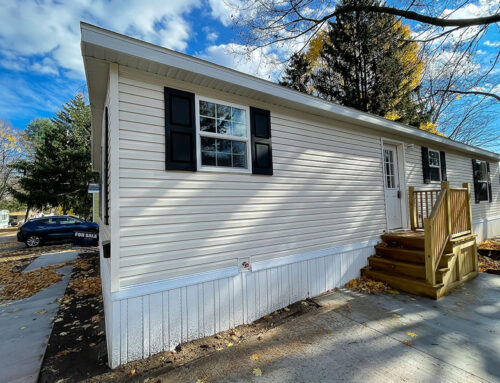You’re probably keeping a finger on the pulse of the local real estate news just as I do. However, each news outlet has its own story to tell and it can be hard to make sense of it all. Even more challenging is the fact that these sources are often created with the typical home buyer or seller in mind—not investors. As investors, we have a unique perspective on market opportunities. Fortunately, the market forecast for real estate investing in Jersey City is actually looking pretty good as we head into 2019.
JERSEY CITY’S REAL ESTATE MARKET STAYS STRONG FOR SELLERS
Thanks to the efforts of Mayor Steven Fulop, there has been a surge in new developments and new businesses over the last couple of years, though many have landed in the fast-gentrifying downtown area. By mid-2017, there were thousands of new residential units under construction and even more than that approved for construction. When 2018 came around, much of the downtown area was either built out or slated to be. So, developers have started to creep into surrounding communities—and, so have new home buyers looking for more affordable options. While so much new housing in the downtown area has hampered prices there, the 2019 real estate market in Jersey City continues to look strong overall.
The most recent Jersey City real estate market report issued by Pure Properties suggests a seller’s market for 1 to 4-family houses, with no signs of slowing down in 2019. Of course, moderately-priced neighborhoods will be the best place to look for deals, but, that’s not necessarily anything new. Still, let’s take a neighborhood-by-neighborhood look at how things stand, according to the report, as the new year progresses so that you know where the best real estate investing in Jersey City can be found.
- Bergen-Lafayette. There are typically fewer overall sales in this neighborhood compared to others and transactions are down by about 14% from roughly a year ago. But, prices are trending upward, with the median sale price jumping from $423,500 to an impressive $577,000 in the last twelve months. And, despite this jump, properties have been flying off the market in even less time than they were last year. So, though the number of sales have thinned, it’s probably an issue of inventory and that, in turn, has prompted home buyers to gobble properties up once they go on the market. Though the entry point for this neighborhood is higher than some of the others around town, your exit from an investment property here has the potential to be fast as well as lucrative if you get your numbers right.
- The Heights. Sales took a hit in The Heights by 2018’s fourth quarter, dropping by 29% to 56 from 79 the year previous. But, because prices continued to rise at a relatively moderate pace, demand seems to have maintained its hold. Fewer sales may simply equal fewer houses available for sale. And, as is true for several neighborhoods around the city, last year’s impending property tax hike likely kept some buyers at bay. But, in the end, home buyers showed up and shelled out, pushing home sale prices up. Even with the current median house price reaching $642,000, average days on market has stayed fairly low over the last year at 39 days—another sign, you’ll note, that demand hasn’t yet waned.
- Downtown. The glut of new developments may finally be putting a damper on the high prices that are typical of the downtown area. Median house prices actually decreased by another 4% in 2018 and the amount of time that homes stay on the market increased again by 8%. To make matters worse, property taxes in most downtown neighborhoods are expected to jump by nearly 60% as a result of last year’s revaluations. That could turn even more buyers away, further pushing the median home sale prices down. So, your only safe play is to buy so far below market that potentially selling during another price drop won’t negatively affect your returns. But, with a current median price of $1,298,000, a below-market price could easily still be too hard to reach.
- Greenville. This neighborhood is one of the more affordable in Jersey City, with a current median house price of $380,000—which still reflects a 29% year-on-year increase. Although sales in fourth quarter 2018 were down from the same time last year, a 5% dip is only a drop in the bucket compared to some areas and may simply be due to fewer homes being listed. Days on the market were up slightly, however, from 53 to 61. But, with the new property tax rate finalized only last August, and 2018 home buyers unclear about how their purchases would be affected, shyness in the market is understandable. The good news, however, is that Greenville’s tax rate actually plummeted by 45%, which will probably help keep this neighborhood on the hot list with buyers. That means it should remain on the short list for you.
- Journal Square. There has only been a small decrease in the number of sales in Journal Square over the past year, but there’s has also been a decent bump in home prices—from $490,000 to $532,500. This likely points to fewer homes being put on the market in a neighborhood where demand remains strong. Properties are sitting on the market longer, too, but only by a few days. Since a steady climb in prices doesn’t seem to be ill-affected by a slight elevation in the number of days on market, growth in the area isn’t expected to fall immediately—especially in a bustling business district and transportation hub like Journal Square where property taxes fell by 10% last year. Sellers seem to understand the value of living in the area and that, if they wait it out for a handful of extra days, their Journal Square home will sell. Your freshly rehabbed investment property probably will, too.
- West Bergen. Another moderately-priced neighborhood, the number of sales in West Bergen have also dipped slightly. Again, this may simply be because fewer houses went up for sale last year. Prices, on the other hand, have been showing a steady upward trend, rounding out 2018 at $375,000. It’s taking 42 days on average to sell a home, however, which is up from 35 last year—possibly reflecting some reticence on the part of local buyers to pay a 19% increase in median home prices. Would-be home buyers might have also been afraid of taking on a higher property tax rate last year—fears that, for West Bergen homeowners, have since been put to rest. So, you might want to take action and buy in this neighborhood while prices are going up.
Since we’re going into the new year with a seller’s market—except, perhaps, in the downtown area—2019 will be a good time to own investment properties. Though, it may be harder to find them. Downtown simply isn’t producing the kind of returns you’d need to see to make the expensive entry worth it. Your best bet will still be to buy, renovate, and sell properties in older or transitioning neighborhoods, like Greenville and West Bergen, where homeowners may be distressed for reasons like a job loss or a death in the family. Of course, it’s important to remember that these properties will probably need a bit of rehabbing before they’re placed back on the market. Homeowners who can’t make their loan payments for any reason usually can’t afford a property’s upkeep either. Provided you have a real estate investment analysis and valuation tool to help you calculate the numbers, however, this shouldn’t prove daunting—no matter where you invest in Jersey City.
FINDING LEADS FOR NJ INVESTMENT OPPORTUNITIES
The most challenging part of being an investor is finding the right leads to increase your real estate portfolio. As an independently owned and operated HomeVestors® franchisee, I leverage the widely-known national “We Buy Ugly Houses”® brand in my marketing. Homeowners have seen this campaign on billboards and television spots, so they know who to call when they need to get out of a difficult financial situation with a fast home sale—me.
Are you prepared to harness Jersey City’s market opportunities? There’s still time to position yourself to achieve your real estate investing goals by getting in touch with HomeVestors® today.
Each franchise office is independently owned and operated.
Contact
"*" indicates required fields





